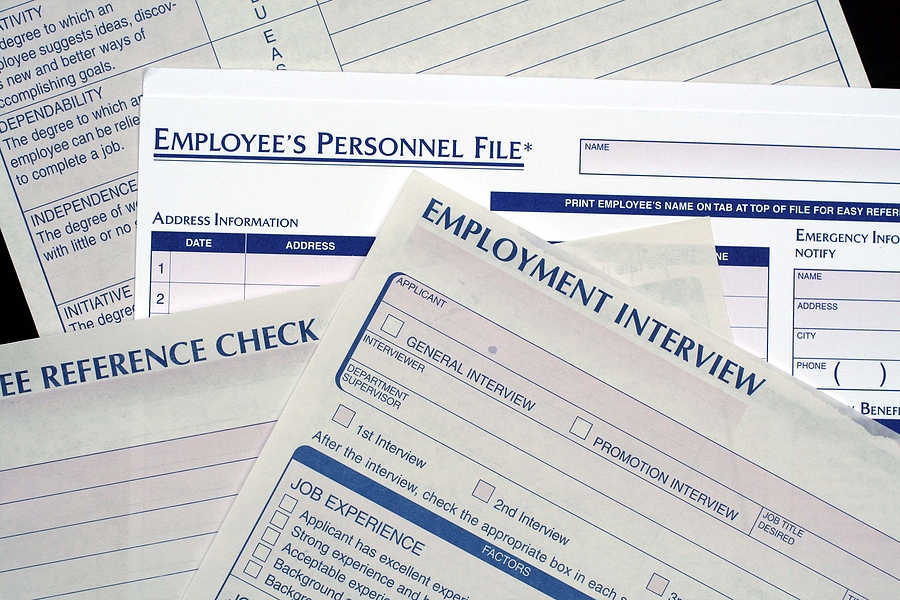
In today’s competitive job market, where resumes can be polished to perfection and interviews rehearsed, a professional reference often offers the most honest look at a candidate’s skills and character. At Integras, we’ve seen firsthand how a professional reference can either confirm a highly qualified candidate—or raise important red flags.
Let’s break down why professional references matter, how to conduct them properly, and what the Fair Credit Reporting Act (FCRA) says about obtaining adverse information.
Why Are Professional References Important?
Employers use references to validate the information a candidate provides during the application process and to get a more well-rounded view of the individual. Below are common reasons why employers include references in a background check:
- Accuracy. Employers will compare the information provided with what the reference says. Are the dates of employment and job titles consistent? Are the responsibilities outlined on the resume supported by the reference? The FCRA governs the reporting of this information (more information below).
- Performance. The reference check helps assess a candidate’s previous job performance. Employers want to know about the individual’s effectiveness, approach to tasks, and ability to meet expectations. Common questions include:
- Did they consistently meet deadlines?
- What are their strengths and weaknesses?
- Work Ethic. Employers want to know about a candidate’s work ethic and professional conduct. Did the person demonstrate initiative or require close supervision? References may be asked to provide feedback on punctuality, collaboration, and dedication.
- Interpersonal Skills. How did the individual interact with others at work? Did they work well with team members? Employers may also want to hear about the candidate’s character and ability to work as part of a team.
- Reason for Leaving. Employers might also question the circumstances surrounding a candidate’s departure from a previous position. Was the individual laid off? Did he or she resign? Did the candidate leave for another reason?
The Art of Conducting a Professional Reference
Not all reference interviews are created equal. To get the most valuable insights, the process must be both methodical and respectful. Here’s how we approach it:
- Talk to the Right People. We speak with individuals who have worked closely with the candidate: direct supervisors, colleagues, or even professors. Friends and family members may offer insight into an individual’s character, but decision-makers often have the most useful perspective on previous work performance. When candidates provide references who have no professional relationship to them, we bring this to our clients’ attention.
- Ask Open-Ended Questions. Rather than simple “yes/no” questions, we ask questions that provoke a thoughtful response, providing a more nuanced understanding of the candidate:
- “How often do you interact with the candidate?”
- “Could you elaborate on the candidate’s responsibilities?”
- “Can you provide examples of a time when the candidate displayed their abilities?”
- “If given the opportunity, would you work with the candidate again?”
- Uncover Backstory. Determine how the interviewee and the candidate know each other. When did they meet and how? Are they still in contact? Was there a power dynamic in their working relationship, and did that ever change? Such digging has uncovered new information. For example, while speaking to a candidate’s former supervisor, we learned that the supervisor hired the candidate and that the candidate was her brother. Some employers regard interviews with family members with reservation, which makes it important to understand the nature of the interviewee and the candidate’s relationship.
FCRA: Protecting Candidates and Employers
Professional reference checks must also comply with the Fair Credit Reporting Act, a federal law designed to promote accuracy, fairness, and privacy in the information collected by consumer reporting agencies (like us).
Here’s how the FCRA applies to professional references:
- Disclosure and Authorization. Before we gather reference information, candidates must receive the following:
- Clear, written disclosure that an investigative background check will be performed. This is in addition to the standard disclosure for background checks and contains additional language and responsibilities.
- An authorization form, signed by the candidate.
- Adverse Information. If a reference reveals adverse information—such as poor performance, behavioral issues, misconduct, or conflicts with the candidate’s account—the FCRA requires the following for that information to be included in the background check:
- The consumer reporting agency (CRA) “followed reasonable procedures to obtain confirmation of the information, from an additional source that has independent and direct knowledge of the information; or”
- The interviewee is “the best possible source of the information.”
The above process ensures fairness while giving employers the critical context they need to make informed decisions. Such compliance is an important benefit of using a CRA to conduct reference interviews. Here at Integras, we follow strict procedures to ensure that any adverse information reported on a subject, including any obtained during reference interviews, adheres to FCRA reporting laws.
Final Thoughts: The Value of Insight
In an age of clean digital profiles and perfected resumes, professional references bring humanity back to hiring. These interviews remind us that candidates are more than bullet points or, in some cases, not.
At Integras, we go beyond information collection to provide insights that help our clients make informed decisions. For this reason, professional reference interviews are yet another important component of a comprehensive background check.












